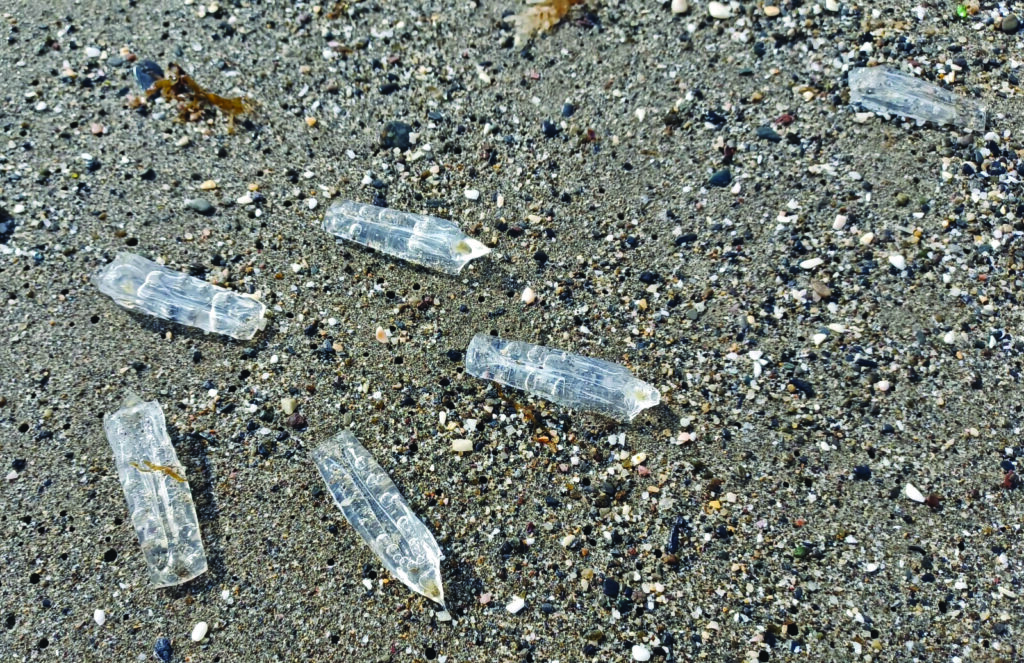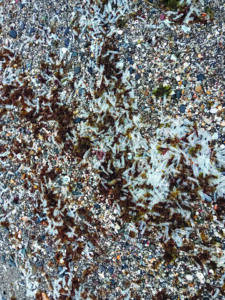
Beaches all along the Malaga coast, including Manilva, have seen a proliferation of small, plastic-like creatures, known as Salps, washed up on the water’s edge in recent weeks.
These gelatinous marine animals are common in seas and oceans across the world, but the recent mild sea temperatures have led them to proliferate in our local waters, and easterly winds have led them to being washed up on the beaches.
The Councillor for beaches, Gema Zotano, recently visited the coast to see for herself the appearance of these animals, and monitor their removal by council workers. She has been reassured by experts that the creatures are totally harmless.
What are salps

Salps are marine organisms with a gelatinous, barrel-shaped structure belonging to the tunicate group in the phylum Chordata. They are found worldwide and are known for their unique life cycle and filter-feeding behavior. Key features include their transparent body, colonial organization, jet propulsion for movement, a distinctive life cycle involving solitary and colonial forms, filter-feeding on phytoplankton, and some species exhibiting bioluminescence. Salps play a crucial role in marine ecosystems, influencing carbon flow through the food web, and are distributed globally in oceans from polar to tropical regions.








